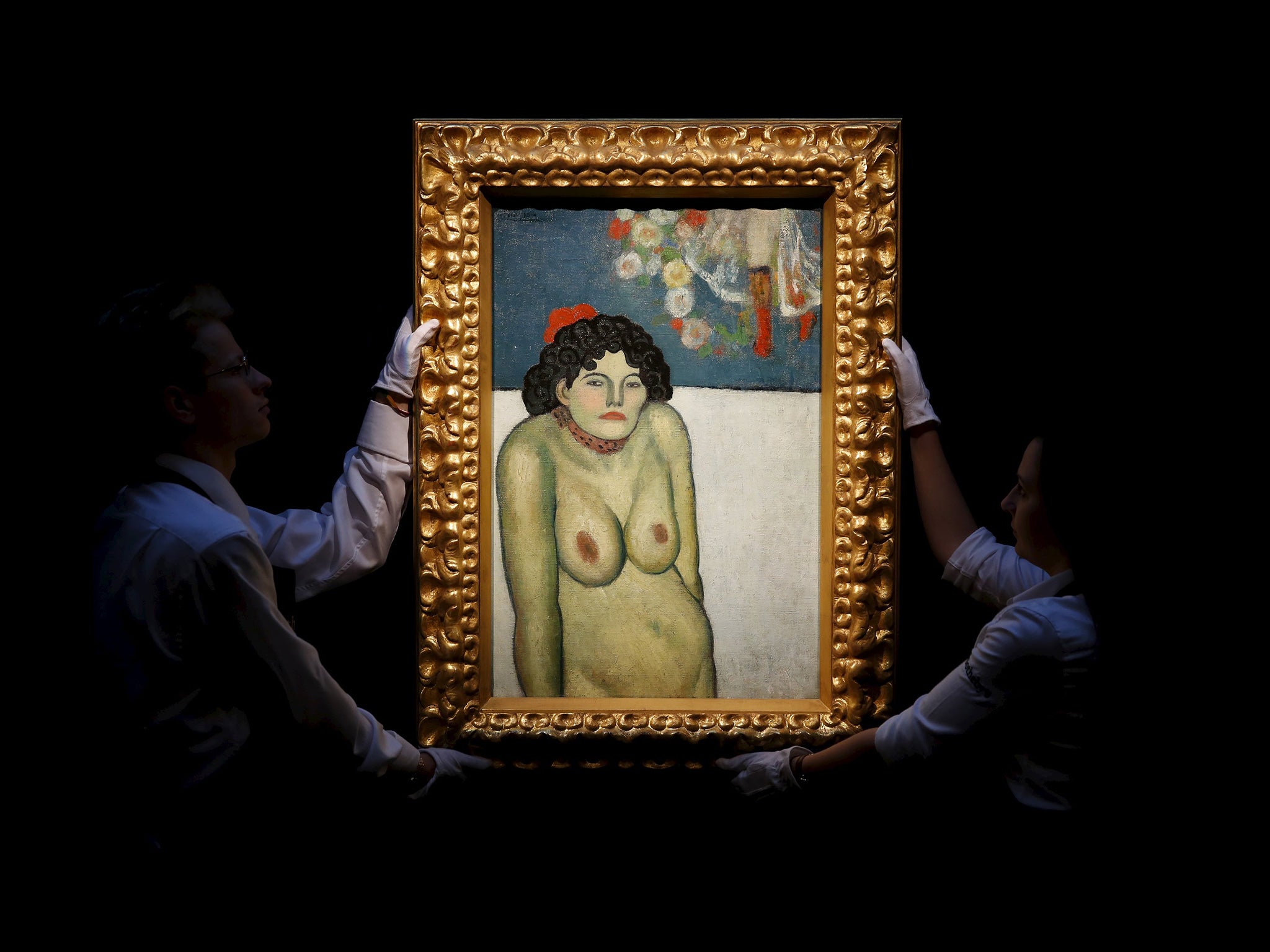Painters do not produce their best work when suffering emotional turmoil, research says
Academic's findings suggest the enduring image of tortured artists like Vincent van Gogh could be a myth

Your support helps us to tell the story
From reproductive rights to climate change to Big Tech, The Independent is on the ground when the story is developing. Whether it's investigating the financials of Elon Musk's pro-Trump PAC or producing our latest documentary, 'The A Word', which shines a light on the American women fighting for reproductive rights, we know how important it is to parse out the facts from the messaging.
At such a critical moment in US history, we need reporters on the ground. Your donation allows us to keep sending journalists to speak to both sides of the story.
The Independent is trusted by Americans across the entire political spectrum. And unlike many other quality news outlets, we choose not to lock Americans out of our reporting and analysis with paywalls. We believe quality journalism should be available to everyone, paid for by those who can afford it.
Your support makes all the difference.From Vincent van Gogh to Mark Rothko, the image of tortured artists producing their best work when suffering emotional turmoil has endured, but new research suggests it could be a myth.
An academic has found painters suffering in the wake of a death do not produce their best work or even work that sells particularly well.
Kathryn Graddy, professor of economics at Brandeis University, Massachusetts in the US, said her findings were a “happy result”. Prof Graddy studied the effect the death of a relative or close friend on artists’ creativity in a working paper called Death, Bereavement and Creativity.
Works painted over the year after such an event tend to sell for “significantly” less than others at auction, she found, and are less likely to be included in a major art collection. “These results are consistent with the psychology literature relating to mood and creativity,” the academic said. “But it’s not consistent with the popular idea that suffering necessarily increases artistic creativity.”
Professor Graddy said: “This is not a sad result, this is a happy result. It would be awful if you had to suffer bereavement or a death just to be creative and productive. I’m not sure that when people think about it more deeply that they will be surprised.”
The working paper studied 48 European and American artists from Edgar Degas, Edouard Manet, Claude Monet and Picasso to Willem de Kooning, Jackson Pollock, Rothko and Agnes Martin.
Biographical details of deaths were matched to information on more than 15,000 paintings from research group Blouin’s Art Sales Index and the Metropolitan Museum of Art’s online collection.
“Artists working after such an event are, on average, less creative than at other times of their lives,” Professor Graddy said. The research found that the value of a painting sold at auction was 50 per cent lower for those created in the year after the death of an artist’s friend or relative.
Cézanne was unable to paint for months after the death of his mother.
The sombre Blue Period paintings Picasso executed after 1901 were inspired, many art historians believe, by the suicide of his friend Carlos Casagemas. La Gommeuse, a Blue Period painting, broke a record for that time in Picasso’s work when it sold for $67.5m last month. But the most expensive painting sold at auction is another Picasso: Les Femmes d’Alger, painted over half a century later, which sold for over $100m more in May. “The Picasso that sold for a record was not a Blue painting. He’s very much in the sample and we still get the result with his work,” Professor Graddy said.
Psychologists believe creativity is boosted by an artist being completely absorbed and that bereavement interrupts the flow and alters the mood. “My psychologist colleagues weren’t at all surprised at this result. The reason I did it, it seemed an interesting empirical question and I could get the data to do it,” she said. “It feeds into the traditional image of the artist, but you don’t have to be tortured; in fact it’s probably not good to be to produce good work.”
Professor Graddy decided to study the correlation after a conference in Oxford in 2014, when an economic historian had looked at Mozart and how bereavement affected his productivity.
Join our commenting forum
Join thought-provoking conversations, follow other Independent readers and see their replies
Comments